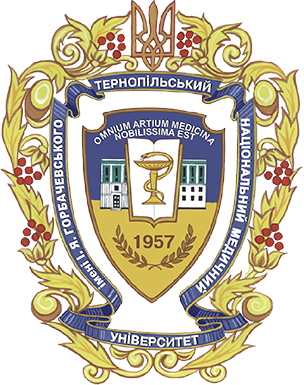Revolutionary Prosthetics System by Austrian Company in Ternopil
On October 14, 2024, representatives of the Austrian company Saphenus Medical Technology arrived at Ternopil National Medical University to introduce the latest leg prosthetics system, Suralis. The system is designed to help amputees feel the prosthetic as if it were their limb and eliminate phantom pain, which can persist long after the loss of a leg or arm. Aaron Pitschl, Chief Technical Officer of the Saphenus project, and Christian Bouda, Chief Financial Officer, shared the results of using this system in Ternopil.
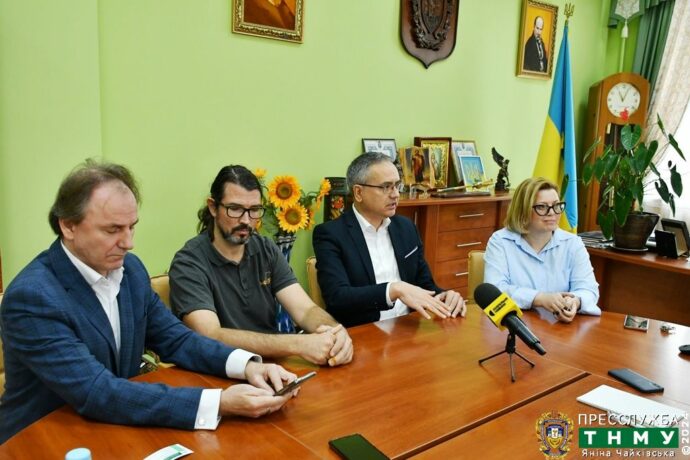
The Rector of TNMU, Professor Mykhailo Korda, emphasized the importance of this project for both Ukraine and TNMU, as there are many people in the country with limb amputations due to the ongoing war. According to unofficial data, this number reaches 200,000 people.
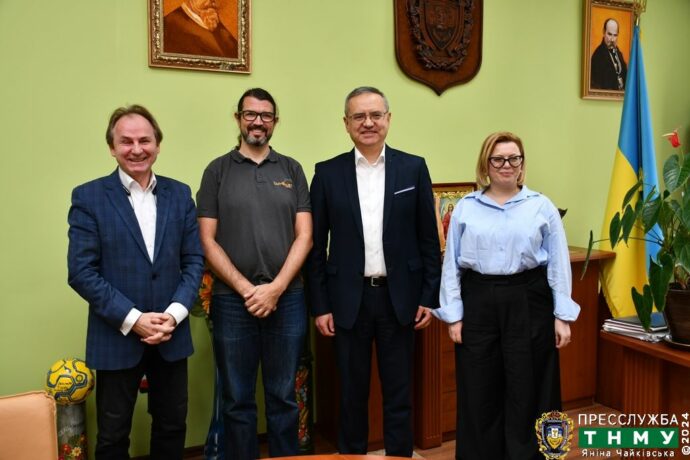
“Until this year, Ukraine did not have a system for training prosthetists, specialists who professionally manufacture prosthetics. In 2024, four medical universities — Ternopil, Lviv, Kharkiv, and Shupyk National Healthcare University of Ukraine — launched a master’s program for training prosthetists-orthotists. As a result, we are seeking various opportunities for international cooperation so that foreign colleagues with extensive experience in prosthetics can help us create the best possible curriculum and pass on advanced knowledge and experience to our students. We have many international partners, including Saphenus Medical Technology from Austria. The company started its work in 2016, and in 2021 it first applied its development to patients. A person with an amputated leg who uses a prosthetic does not feel the surface they walk on—whether it’s grass, asphalt, or gravel. Saphenus Medical Technology has developed a technology where sensors transmit signals to a device placed on the patient’s stump. This creates a vibration, which the brain perceives as signals. Being a plastic structure, the brain quickly learns to recognize all surfaces, making the prosthetic feel like a “real” leg. This is the second visit from our Austrian colleagues. Patients in Ukraine are already using this device. This time, one device will remain here for our master’s students to use with patients,” said Mykhailo Korda.
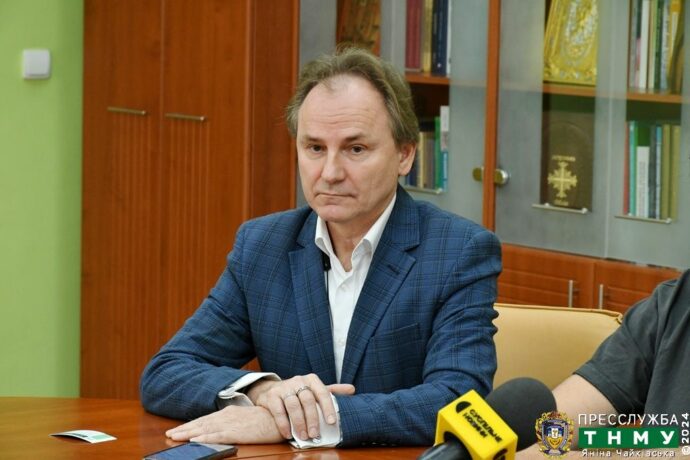
Christian Bouda, Chief Financial Officer of Saphenus Medical Technology, noted that the company’s technology restores peripheral sensitivity and is based on the 2021 Nobel Prize. It is a world-class invention that has been implemented in the medical field. The company collaborates with Hanover and Harvard Medical Schools.
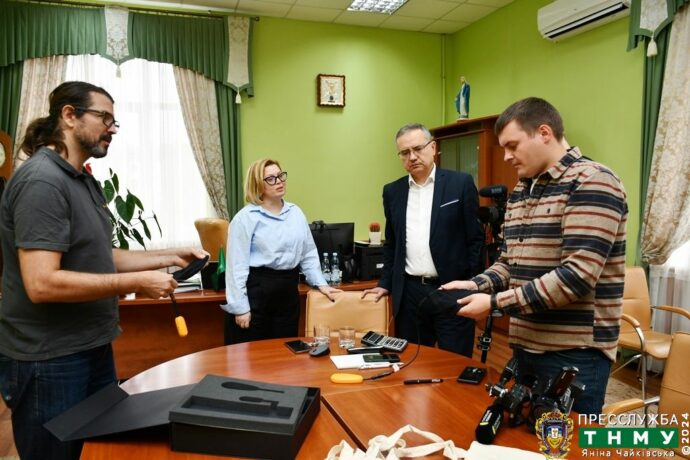
“It is important for us to bring all our developments and implement them in Ukraine to help people who have become victims of this unjust war, a war they did not invite into their country. The scientific and practical implementation of this project took seven years. We believe that our efforts will help Ukrainians,” added Christian Bouda.
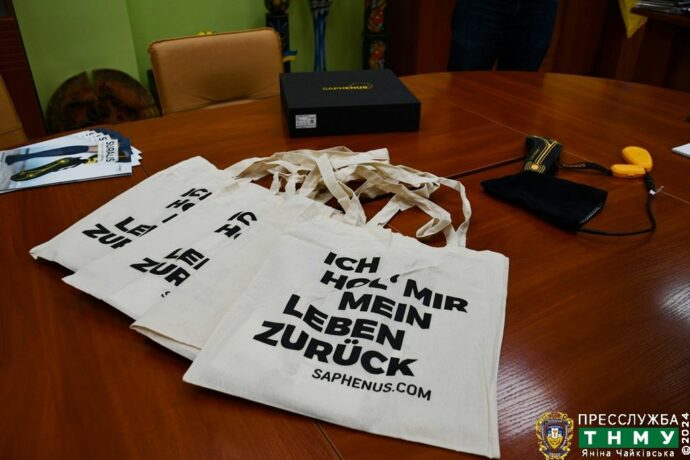
Six hundred Suralis feedback system devices are already used in Europe and the USA. The product has received numerous awards, including an EIC (European Innovation Council) grant from the European Commission. Sensory feedback systems are used in leading clinics worldwide, including Harvard and Hanover Medical Schools.
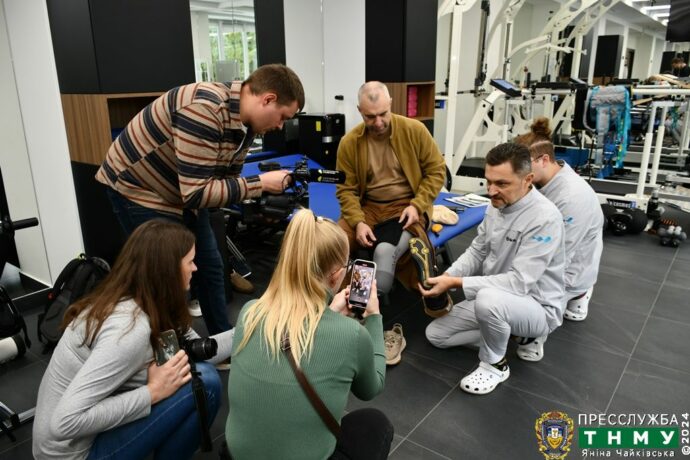
“Saphenus will help future prosthetists gain new knowledge about how sensory feedback and the sense of touch can alleviate phantom pain in amputee patients. A long-term partnership is planned between the Ukrainian university and the Austrian company,” said Yuriy Zavidnyuk, Director of Forward-Orto and Associate Professor at TNMU.
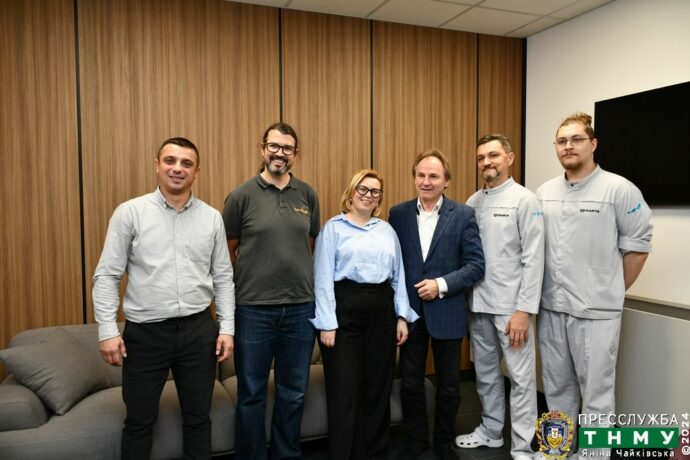
He also demonstrated how the system works in practice and what results amputee soldiers have achieved over two months. Their gait has become confident and complete.
This program is funded and supported by the Firuza Foundation.
